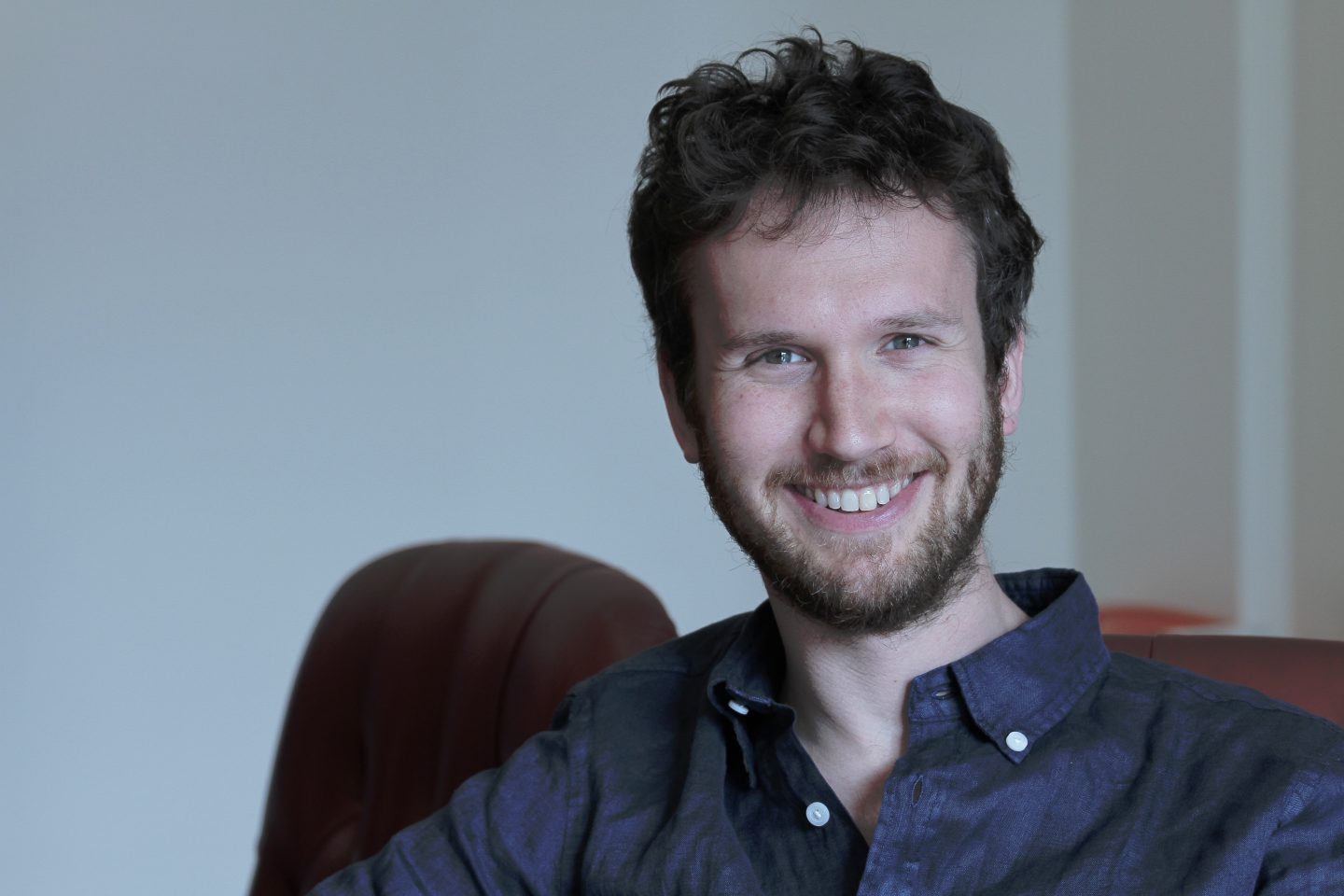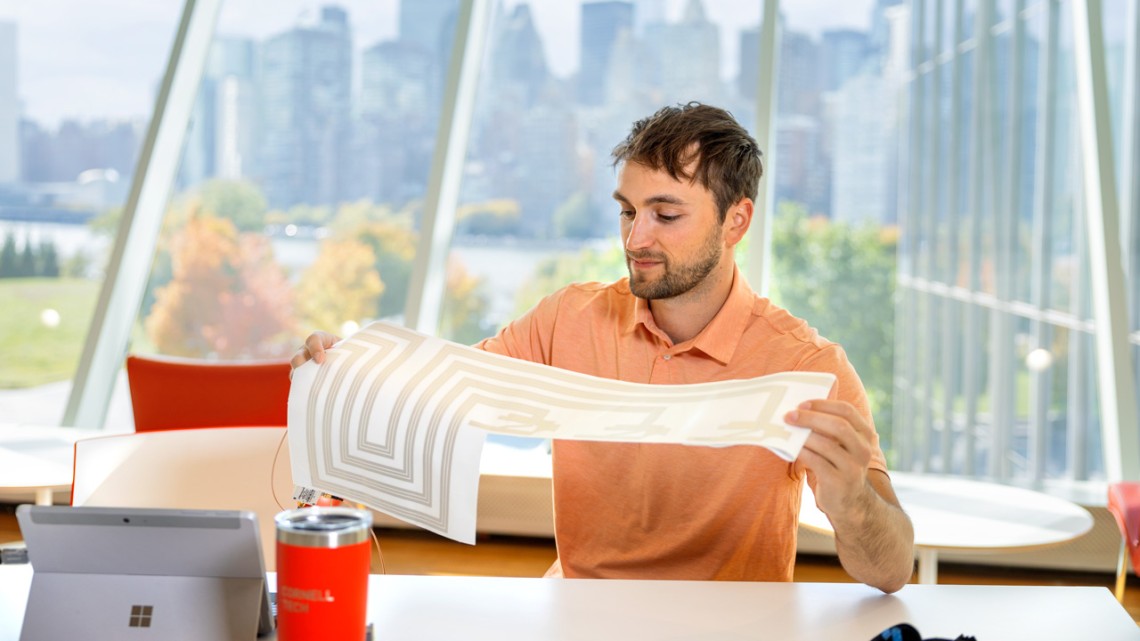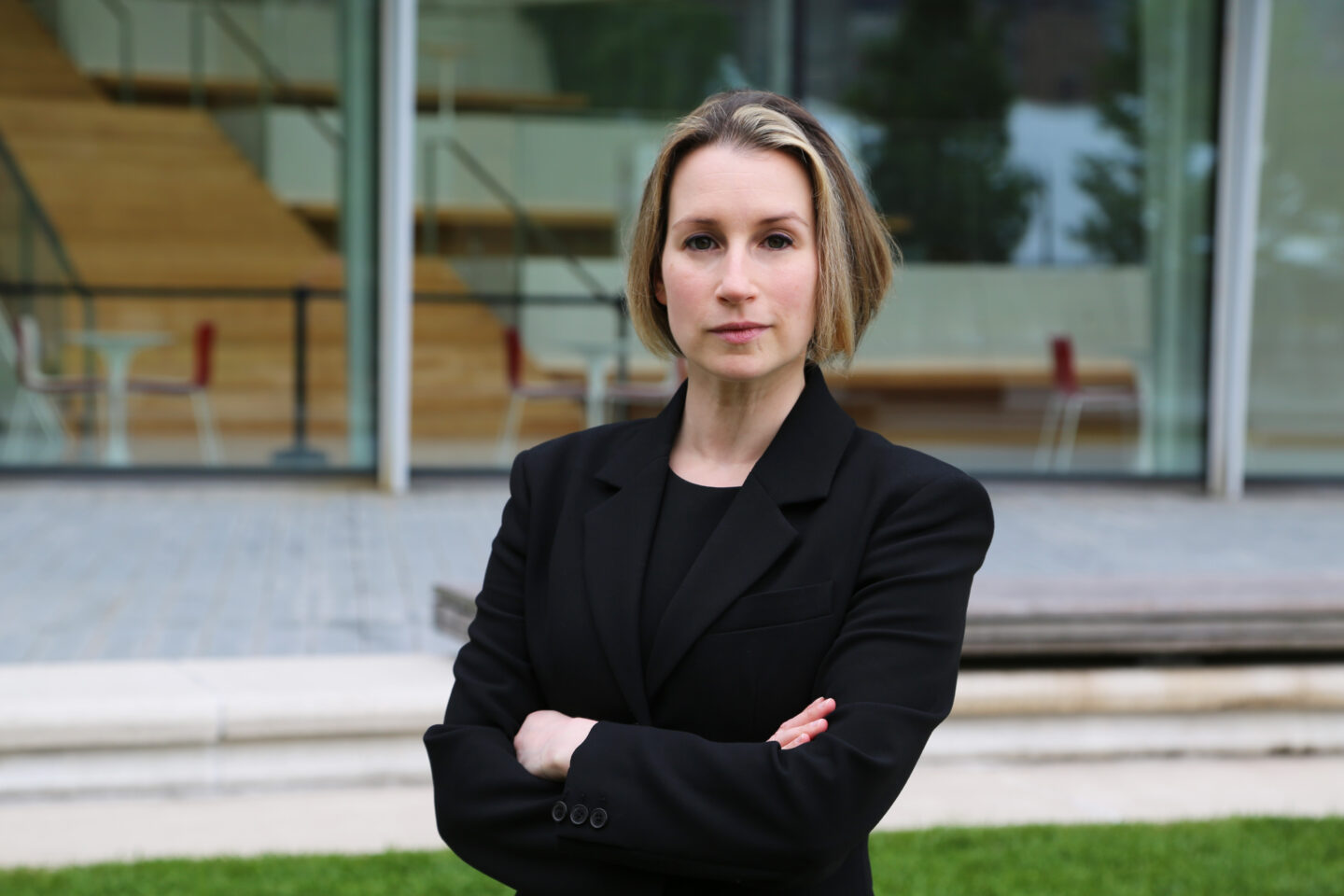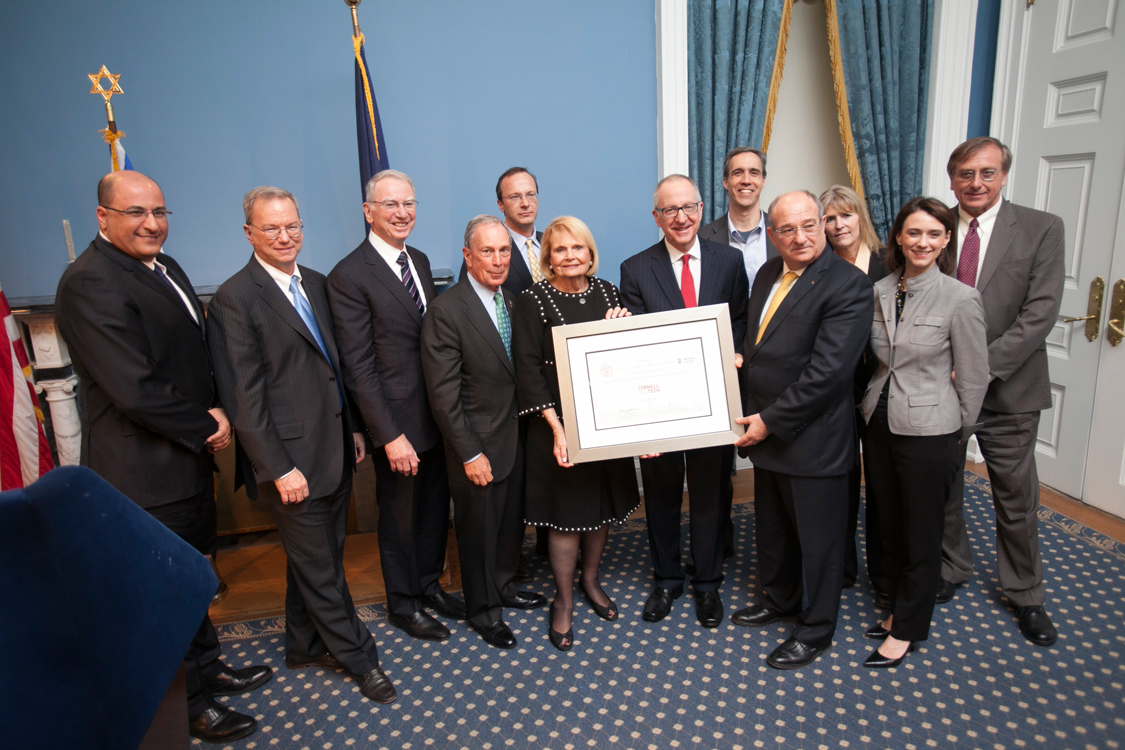Coaching the Next Generation of Tech Entrepreneurs – Q&A With Runway Coach Caroline Wharton
Categories

In the fast-paced world of innovation and entrepreneurship, few roles are as pivotal as that of a coach. More than just mentors or advisors for startups, coaches can create connections across an industry, understand when a startup’s products are ready to launch and how to scale a company.
In her second academic year, Caroline Wharton, an Executive-in-Residence in Cornell Tech’s Runway Program, has played a crucial part in guiding startups from early stage ideas to developing business proposals and pitch decks. With a wealth of experience spanning corporate banking and startup leadership, Wharton has a unique perspective on what it takes to build a successful business in today’s challenging market.
We recently spoke with Wharton, who shared her insights on the resilience required for founders, the importance of adaptability, and how her role as a coach has evolved through her involvement with the Runway Program. From helping founders pivot to navigating tough funding landscapes, her wisdom offers invaluable guidance for aspiring entrepreneurs.
Cornell Tech: Can you tell us a bit about your professional background and what led you to coaching startups at Cornell Tech? How did you first get involved with the Runway Program?
Caroline Wharton: My background spans a mix of leadership roles in both corporate and startup environments, including my time at Wells Fargo and my own startup, Corraun Advisors. I’ve always been passionate about innovation, business development, and helping teams realize their full potential. Over time, I found that coaching startups allowed me to combine my experience with my desire to give back, and I truly enjoy guiding founders through the challenges of entrepreneurship.
My journey with Cornell Tech began from a passion for working with startups and emerging technologies. I had been mentoring entrepreneurs for a while, and when I learned about the Runway Program, I was immediately drawn to its unique focus on deep science-based startups. Joining as a coach felt like a natural next step, giving me the chance to work closely with talented, driven individuals who are transforming industries. It’s been incredibly rewarding to be part of this community, where I can stay close to cutting-edge technologies while also mentoring the next generation of innovators.
How do you help founders navigate the challenges of market discovery, and what role does the Runway cohort play in managing these challenges?
Navigating market discovery and pivoting is one of the hardest parts of entrepreneurship. It’s crucial to have peers or advisors, including the Runway team, to help founders stay objective. When feedback shows that their initial market discovery isn’t working, founders need to quickly evaluate other potential avenues. It’s about speed—if option A isn’t viable, they must either substantiate option B quickly or move to option C. This process can be tough, and for many, it feels like a grieving process when an idea doesn’t work out. But that’s where resilience and determination come in. Founders need to ride these waves and keep going.
The Runway cohort plays a vital role in this. As founders talk to their peers, they realize their struggles are not unique. There’s comfort in knowing that what they’re going through is the norm, not the exception. Some founders even find inspiration from one another, learning from shared experiences and building a supportive network that helps them manage these challenges.
What makes the New York City startup culture unique?
I spent some time on the West Coast for business and what I found is that the New York City ecosystem is so different and so healthy when compared to other cities. Everyone is so good at what they do, and I see people trying to help one another with the belief that a rising tide lifts all boats. Something that stands out to me is how willing those who have “been there and done that” are in providing constructive feedback and offering great networking advice. I really feel like New York is a city that is trying to move the needle in a positive direction when it comes to startups.
How has your experience as a coach influenced your own professional life, and what changes have you seen in the founders over time?
I’m naturally curious, and I love hearing about the ideas and businesses our cohort members are working on, especially those with a deep science base. It’s inspiring to see how they solve problems, and I often take those lessons back into my own work. Being a coach is not a one-way street—I learn from these founders’ resilience, dedication, and ability to continuously improve.
Over time, I’ve seen founders undergo significant transformations. The first year can be overwhelming, learning how to build a business, pitch to investors, develop products and manage financials all at once. It’s like drinking from a fire hose. By the second year, they’ve developed a level of resilience and strategic focus. Many are still pivoting, but they’re more grounded in their approach, with a clearer understanding of how to navigate a tough funding environment and target the right investors or grants.
What impact has the current funding environment had on startups in the program, and have there been any particularly inspiring projects?
The current funding environment has been challenging for many founders. Traditional VC funding is tougher to come by, which has pushed startups to explore alternative routes, such as grants or specialized investors who understand their scientific background. It’s about being strategic—founders often feel like investors are waiting with open checkbooks, but that’s rarely the case. The successful ones stay committed and figure out the right pathways for their business, often through more niche funding avenues.
One of the most inspiring projects from the program is Nanit, a baby monitor company that’s even used by the Kardashians. Another standout is Project B, which is developing customized bras using 3D printing technology. They’ve been gaining traction and tackling supply chain challenges, which has been incredible to watch. Seeing startups like these grow has been a real privilege, and I’m excited to see where they go from here.
What excites you most about working with the Cornell Tech Runway cohort?
I’m regularly blown away by the ideas these founders bring to the table. Whether it’s in healthcare or another field, it’s exciting to witness their growth from concept to market. Some of their solutions have the potential to be truly transformative, and watching them progress, knowing that one day they could reach the same level of success as past graduates, is incredibly rewarding.
Media Highlights
Tech Policy Press
Content Moderation, Encryption, and the LawRELATED STORIES





